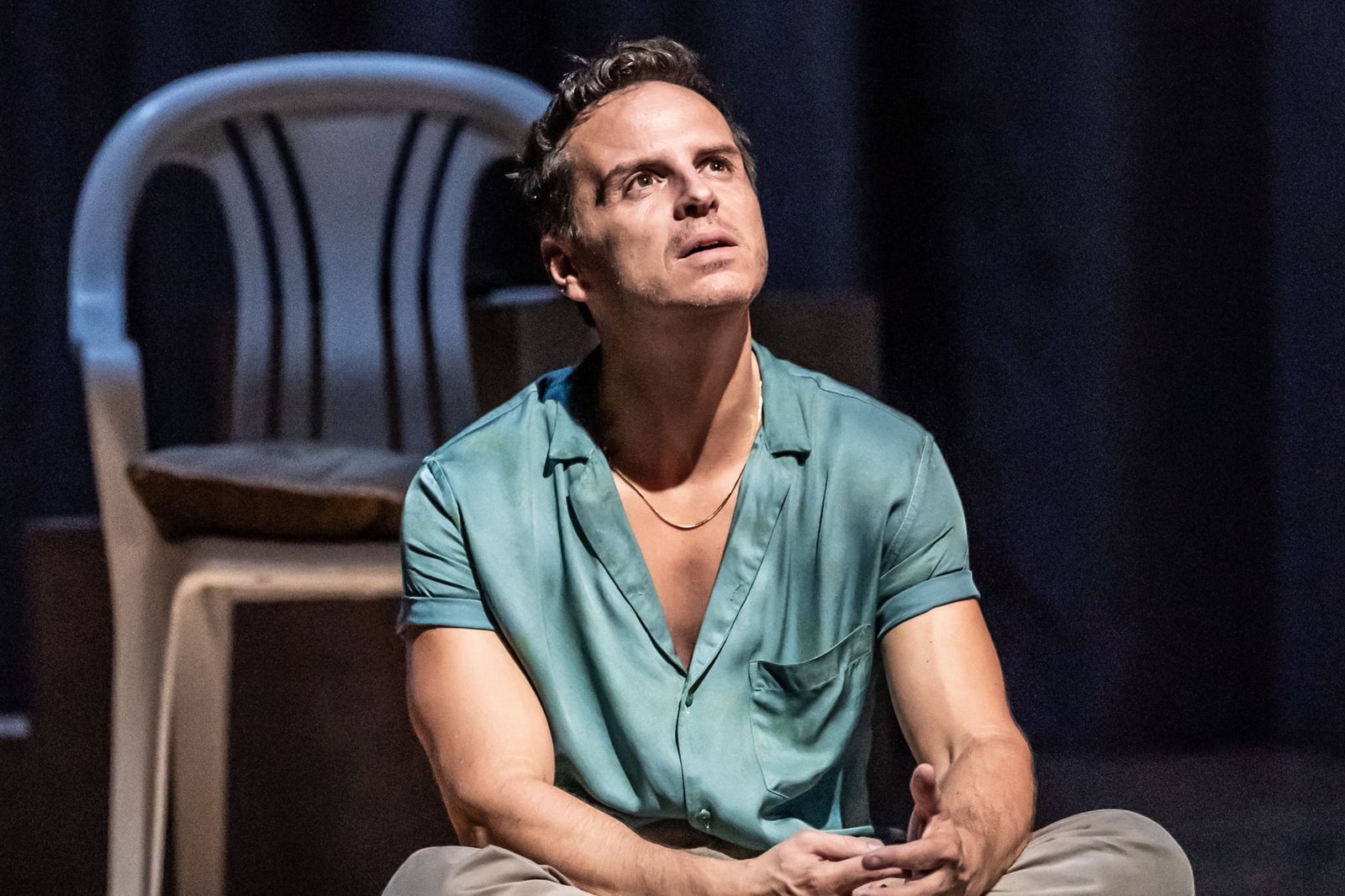National Theatre Live: Vanya Review
This might appear to be a really daring statement, but in my opinion after Shakespeare, I think Anton Chekov is the best playwright we have ever seen. His plays were written at the end of the 19th century and just before the turn of the 20th century and they feel like a fulcrum point where so many ideas meet the push for realism pioneered by playwrights like Henrik Ibsen in Norway, that idiosyncratic spark and wit of the Russian literary voice perfected by Leo Tolstoy; that lush romanticism and connection to indigenous Russian culture woven into the music of composer Pyotr Ilyich Tchaikovsky and perhaps most powerfully still, that sense that the world was on a knife’s edge. The characters in Chekhov’s plays are hopeless in so many senses of that word hopelessly romantic, hopelessly naïve, hopelessly idealistic and hopelessly caught in this riptide of a changing social political economic world. And he expressed this not through monolithic tragedy like Ibsen but through gentle sparkling incandescent comedy, a gentleness and humanity which has never been matched frankly speaking. He captured as scholar Sharon Marie Cornice puts it ‘the music of everyday life’. What’s all more remarkable is that unlike Shakespeare who wrote dozens upon dozens upon dozens of plays, Chekhov only wrote five full length ones four of which are now considered amongst the finest ever written. He died on the fifteenth day of July nineteen oh four at forty four years old having achieved so much in such little time.
I give all this context then to frame both the ambition and brilliance of Vanya, Simon Stephens’ radical adaptation for National Theatre (soon screening as part NT Live) from Chekhov’s masterpiece Uncle Vanya. This is also probably recognisable as being Ryusuke Hamaguchi’s transcendent film Drive My Car company rehearse throughout. It’s a story about a family caught in one of those transition points where their country estate which is where they have lived all their lives now belongs to the widowed husband of the daughter from another family. The centre of gravity then shifts to her brother Ivan, nicknamed Vanya, who is the only member of his own family with gumption enough to speak the truth even if it will come at a cost he can’t accept. It’s like he’s trying to hold back the tides by himself and doesn’t know whether they want him keep pushing or let deluge wash everything away.
What’s so startling about Stephens’ adaptation here though is that it reshapes Chekhov’s remarkable cast of characters into a monologue for single actor. This isn’t even such new idea recent stage adaptation Picture Dorian Gray at Sydney Theatre Company prime example but what strikes you most clearly with ‘Vanya’, as realised by director Sam Yates, is there are no technical tricks employed to help actor transition between characters no pre-record, no voices off-stage, no AV, just an actor on stage alone surrounded by only most necessary objects tell story, there’s also no narration or set-up in Stephens text either; it simply dives straight into Chekhov’s dramatic action: magic trick that actor can do, that’s all. And casting Andrew Scott (‘All Us Strangers’) in this production must be considered ultimate magic trick pulled off by ‘Vanya’.
As he walks onto the stage designed by Rosanna Vize to resemble a rehearsal room he does so as himself, wearing clothes not dissimilar to what we might see Scott wear in his everyday life. A sip of water; a private moment. And then he turns to us. He goes to a light switch, flicks off the house lights, flicks them on again: simple but gorgeous, this act nods to the audience and lets them know that their presence is appreciated. Turning to a small kitchenette, he begins making a pot of tea. And then with breathtaking simplicity starts shifting from character to character with such ease that it almost makes you gasp immediately.
It’s small actions that are so simple as to be genius: one prop used and one gesture made for each person speaking; a slight move of the head indicating not only who is talking but where in the room they are standing. Like Chekhov does, Stephen and Yates draw us in with gentle comedy good-natured teasing rather than outright mocking but there’s also an education happening here.
Scott takes his time, he lets us have a beat or two for this conceit’s logic to click into place before we start following these transitions through space; some of which are so subtle you barely notice them happening until suddenly someone else is speaking but you always know exactly who it is. Truly like watching magic happen before your eyes dazzled vision and whispering voice saying “How did he do that?” It would be enough (as evidenced by STC ‘Dorian Gray’) just to watch ‘Vanya’ done badly in order appreciate how well Scott navigates it But no He has make look effortless like breathing
However, most notable and crucial to the success of ‘Vanya’ as an idea is how he makes it seem like there is no other way this could have been done. Even if you’ve seen ‘Uncle Vanya’ in its original form on stage, Scott does not so much show that this was always lurking within the text but why nobody tried this before (because only Scott probably could). This is important because it validates the decision to adapt the play into this shape. Sometimes these kinds of one person productions of classic plays can feel like a vanity project, an actor showing off. You go for the spectacle. Not with ‘Vanya’, even though it is absolutely spectacular. What we are watching is simultaneously a full cast of characters, each complete and fully formed, brimming with life and history, and one person, where every character is themself reflected back at themself.
It’s Scott as Chekhov’s characters and Scott as himself with every word every character says coming from something inside him. When you watch or read Chekhov there’s a sense that you’re seeing all human life before you in miniature. By having Scott dance all these characters together in one seamless flow you really get a sense of that. The full sweep is within him therefore within us too.We see him move through love jealousy embarrassment heartbreak fury frustration arrogance cruelty tenderness sometimes in seconds sometimes all at once. And yet every character is different and every story beat clear.
The fact that Scott has the ability to do this should not be news; he has for some time now been quietly among our very finest actors. What none but Scott however could make feel so honest so immediate so alive so specific. Scott’s brilliance as well owes much to Yates’ direction. There also needs to be specificity in ‘Vanya’, and though he may be great on his own terms I’m afraid Scott does still need a strong directorial hand here to tell him when to push when to pull when to sit when to fall. There is not a gesture in ‘Vanya’, grand or granular, that has not been thought about hard and long, and just as with Vicky Jones’ direction of the stage production of ‘Fleabag’, this great actor benefits from having a great director insist on every moment counting. Scott does not have anybody or anything on stage to catch him if he falls, and Yates makes sure that Scott not only is given all the tools to catch himself but also ensures his foundation is so strong that falling never feels like an option. They both also start from Stephens’ text which intelligently keeps Chekhov’s original play sparky and musical but with a contemporary tang. There are points where the writing gets slightly fuzzy, mostly when it has had to stretch due to there being only one actor playing all these parts, but Scott steers through these points expertly.
In the same way that all NT Live screenings are reviewed, it is important to comment on the quality of the film. Typically, when you’re dealing with larger productions like ‘Follies’ or ‘All About Eve’, the camera can’t capture the scale of everything happening on stage. However, in cases like ‘Vanya’, where there’s only one performer, it works much better for the camera as it can act as though it were a singular theatre audience member focusing on this one thing. The filming and editing of ‘Vanya’ is very strong and some creative choices really pack a punch. Often there will be shots where Scott is positioned to the side of the frame which makes you aware of negative space next to him where another character might be, ensuring that energy and liveness Scott is infusing into space reaches cinema audiences. But its most brilliant moments come from unbroken close-ups where we see every minute detail in Scott’s transformations clearly a lot of thought has gone into this recording as would be expected for such a special production. I couldn’t find any details about who worked on this NT Live presentation unfortunately but they should definitely be commended for their amazing job.
The only downside to seeing something like “Vanya” through NT Live is how desperately I wish I could have been in that theatre with those people to feel what they felt because being part of an audience watching live performers breathe right in front of you creates electricity like nothing else on earth and I think it would have knocked me sideways but in this form it’s about as close as we can get without actually being there this “Vanya” is just as careful and considered as the show itself so what Andrew Scott does here isn’t just jaw-dropping skill but his tender generous evocation of one our greatest playwrights ever seen by people all over world In fact my favourite thing about Chekhovian drama has always been that feeling you get when you’re sitting in your seat waiting for the play to start and some part of your brain just goes oh god this is going to hurt because it hits like a truck every time doesn’t it? And that’s what ‘Vanya’ is all that magic distilled down into its purest form longing for human connection terror of being forgotten beauty smallest gestures mourning what was dawning what will all wrapped up in text so sparse production could breathe without distraction and dazzle brightest ever has when in hands Andrew Scott.
Watch National Theatre Live: Vanya Review For Free On Gomovies.


.jpg?w=1024&resize=1024,1024&ssl=1)
.jpg?w=1024&resize=1024,1024&ssl=1)
.jpg?w=1024&resize=1024,1024&ssl=1)
.jpg?w=1024&resize=1024,1024&ssl=1)
.webp?w=1024&resize=1024,1024&ssl=1)
.jpg?w=1024&resize=1024,1024&ssl=1)
.jpg?w=1024&resize=1024,1024&ssl=1)
.jpg?w=1024&resize=1024,1024&ssl=1)